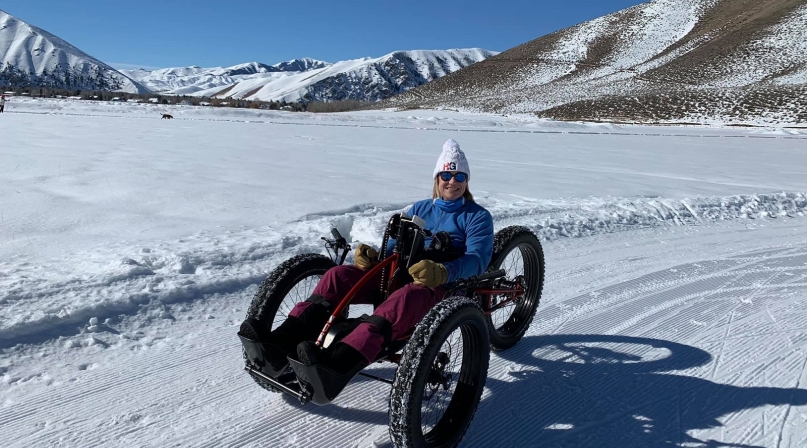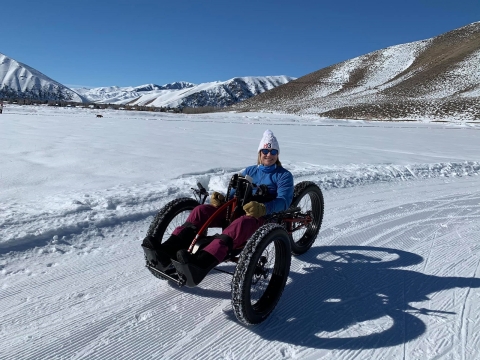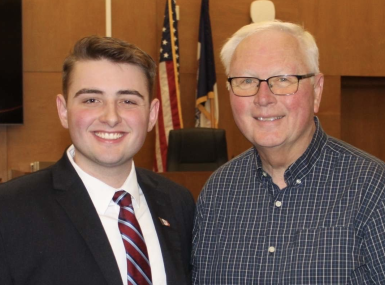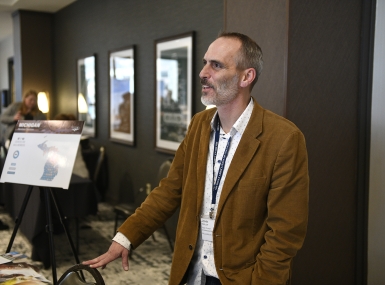Paralympic skier moves from state to county office for bigger impact

Key Takeaways
Whether it was in her training as an elite youth skier or her competitive Paralympic career in both adaptive skiing and handcycling, Muffy Davis had to be sure her equipment fit right. During her political career in Idaho, the same held true — she needed the right fit.
So after less than two terms in the state House, Davis right-sized her role in government, filling a mid-term vacancy on the Blaine County (Idaho) Commission, representing the community where she grew up on a closer level.
“I went to the legislature bright-eyed and optimistic, but it’s hard to have much of an impact when you’re in the minority,” she said. “I was most effective when I was working to help constituents access state services.”
Davis grew up in Blaine County, and from the age of 7, trained to be an elite downhill ski racer, with hopes of competing in the Winter Olympics.
A crash while training when she was 16 left her paralyzed from the chest down, but after graduating from college, she turned to adaptive skiing and medaled in both the 1998 Paralympic Games in Nagano, Japan (bronze) and 2002 games in Salt Lake City (three silver medals).
After her daughter was born in 2008, she turned to handcycling, and won three gold medals at the 2012 Paralympic Games in London. The Paralympic Games follow each Olympiad, offering elite competitions adapted for athletes with physical and intellectual disabilities.
“While my target was the Olympics, my goal was always to be an elite-level athlete,” she said. “It was absolutely amazing. I’ve always felt a strong pull toward service and after my injury, this was how I could represent my country. I couldn’t do it in the military.”
All the while, she lived in Salt Lake County, Utah, working in healthcare fundraising while her husband worked in adaptive recreation for the county. In 2016, the family moved to Blaine County.
In 2017, Davis was named to the Paralympic Governing Board, which gave her the confidence to run for the state Legislature.
She’ll travel to Beijing as part of the Governing Board for the 2022 Paralympics starting in March.
“This community gave so much to me that I wanted to give back,” she said. “We moved back here to raise our daughter and making it a stronger community is part of that. We want to make it a place she wants to come back to and raise a family.”
Now, in her first month on the county Board, she’s adjusting to the new pace.
“I feel a lot more pressure because I’m one of three rather than one of 70,” she said. “I’m going from a 30,000-foot view to a 10,000-foot view. It’s way more rewarding personally, way more diverse.”
She sees her biggest priority as properly investing federal funding from both the American Rescue Plan and the Infrastructure Investment and Jobs Act to ensure Blaine County’s long-term success.
Her main concern is addressing the lack of affordable workforce housing in Blaine County, compounded by the prohibition by the state of counties’ ability to regulate short-term rentals.
“We want to have a long-term strategic plan for where we can see our county in 10, 20, 50 years,” she said. “I’d like to think the way I approached my training starting at age 7 has put me in a good mindset for approaching the kind of long-term thinking we’ll need to do this right.”
But she also knows it won’t be a linear path, and she also knows she can fall back on the resilience she displayed as a teenager following her injury.
“I know how to adapt when things change and you have to readjust,” she said.

Attachments
Related News

County government attracts a new generation
Despite their generation’s online predilections, this pair of Gen Z county elected officials took a traditional approach to their campaigns.
Now I know the pandemic didn’t break my idealism
Megan Dunn started on the Snohomish County, Wash. Council two months before the COVID-19 pandemic started, but despite those challenges, she was up to run for reelection.

Now I know getting the public’s attention is hard
Kalamazoo County, Mich. Commissioner John Taylor found that demonstrable results help draw the public's awareness of the work counties do.
